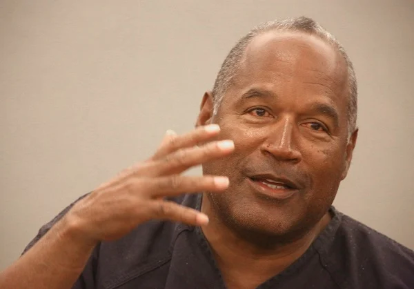Rep. Mike Johnson, a prominent ally of former President Donald Trump, has been elected as the new House Speaker following the historic ouster of Kevin McCarthy, marking a new chapter for the Republican-led House.
Gatekeepers News reports that Johnson, known for his vocal support of Trump and his role in efforts to challenge the 2020 election results, now assumes the role of leading the divided House Republican majority, with the imminent challenge of a potential government shutdown looming.
This transition puts an end to the gridlock that gripped the House after McCarthy’s removal, a move unprecedented in recent history.
Despite multiple unsuccessful attempts to rally behind a new speaker nominee, House Republicans ultimately unified in support of Johnson, a conservative lawmaker who had previously maintained a relatively low national profile.
Notably, his election was marked by an impressive display of party unity, with no Republican defections and a resounding 220 votes in his favor.
Now, Speaker Johnson faces a demanding agenda. The deadline for government funding is just weeks away, set to expire on November 17. The GOP-controlled House must collaborate with the Democratic-led Senate to avoid a potential shutdown, presenting an early leadership test for Johnson.
Additionally, lawmakers must grapple with decisions concerning aid to Ukraine in its battle against Russian aggression and aid to Israel in its conflict with Hamas. While there is bipartisan support for aid to Israel, some House Republicans oppose providing further assistance to Ukraine.
Shortly after the speaker election, the House passed a resolution expressing support for Israel in its conflict with Hamas, with a resounding vote of 412 to 10, showcasing bipartisan backing.
Fresh off his victory on the House floor, Speaker Johnson pledged an “aggressive schedule” in the coming weeks and alluded to the turmoil that had stymied the House and diverted focus from the GOP’s agenda. He promised that Congress would work diligently to deliver for the American people.
The race for the speaker’s gavel exposed new divides and deepened existing ones among House Republicans. While they initially rallied around Johnson in a display of unity, the durability of this unity remains uncertain.
Johnson secured the speakership nomination in a vote that concluded a tumultuous day in which Republicans first selected Rep. Tom Emmer as their nominee, only for him to withdraw due to resistance from the right wing of the party and criticism from former President Trump. Trump labeled Emmer a “Globalist RINO” on Truth Social and cautioned against voting for him.
Emmer became the third Republican nominee for the GOP speakership who ultimately abandoned the race due to an inability to secure sufficient votes, following Reps. Jim Jordan of Ohio and Steve Scalise, also of Louisiana.
Jim Jordan, a well-known Trump ally and staunch conservative, made multiple attempts to secure the speakership, taking his campaign to the House floor in an effort to gauge member support. However, he failed to secure the gavel in three rounds of voting and experienced diminishing support with each ballot.
Some House Republicans who opposed Jordan claimed they faced pressure campaigns and even threats from his allies. Several reported receiving angry calls, menacing messages, and even death threats after casting their votes, a situation Jordan publicly condemned.
Despite his resistance, Jordan repeatedly vowed to continue his fight for the speakership. However, following his third unsuccessful floor vote, the House GOP conference internally decided to withdraw his candidacy, illustrating the limits of Trump’s influence in the speaker’s race, despite the former president’s endorsement of Jordan.
The inability of Republicans to coalesce around successive candidates exposed growing frustrations and tensions within the party, often spilling into the public arena as members lamented the impasse and questioned whether any candidate could secure enough support to win the gavel, given the GOP’s narrow majority.
Speaker Johnson, first elected to the House in 2016 and a former vice chairman of the House Republican Conference, is recognized as a staunch Trump ally. He supported objections to the Electoral College results during the certification of Joe Biden’s presidential win on January 6, 2021, a day marked by a pro-Trump mob storming the Capitol in an attempt to overturn the election results.
In his earlier involvement in the political landscape, Johnson posted messages of support for former President Trump following Joe Biden’s election victory on November 7, 2020, emphasizing the need to explore every available legal recourse to maintain trust in the electoral system.
Johnson serves on the Judiciary Committee and the Armed Services Committee, in addition to his previous role as chair of the Republican Study Committee.
However, it’s worth noting that Johnson’s history includes contentious positions on LGBTQ+ issues during his time as an attorney for a socially conservative legal group in the mid-2000s. His past writings included characterizing homosexuality as “inherently unnatural” and a “dangerous lifestyle,” along with claims that it could lead to legalized pedophilia and threaten the democratic system.
Furthermore, Johnson’s opposition to the Supreme Court’s ruling in Lawrence v. Texas, which struck down state laws criminalizing homosexual activity between consenting adults, has drawn attention.
In 2022, Johnson introduced a bill that some critics have likened to Florida’s controversial “Don’t Say Gay” legislation, sparking additional debate and attention.”

















































